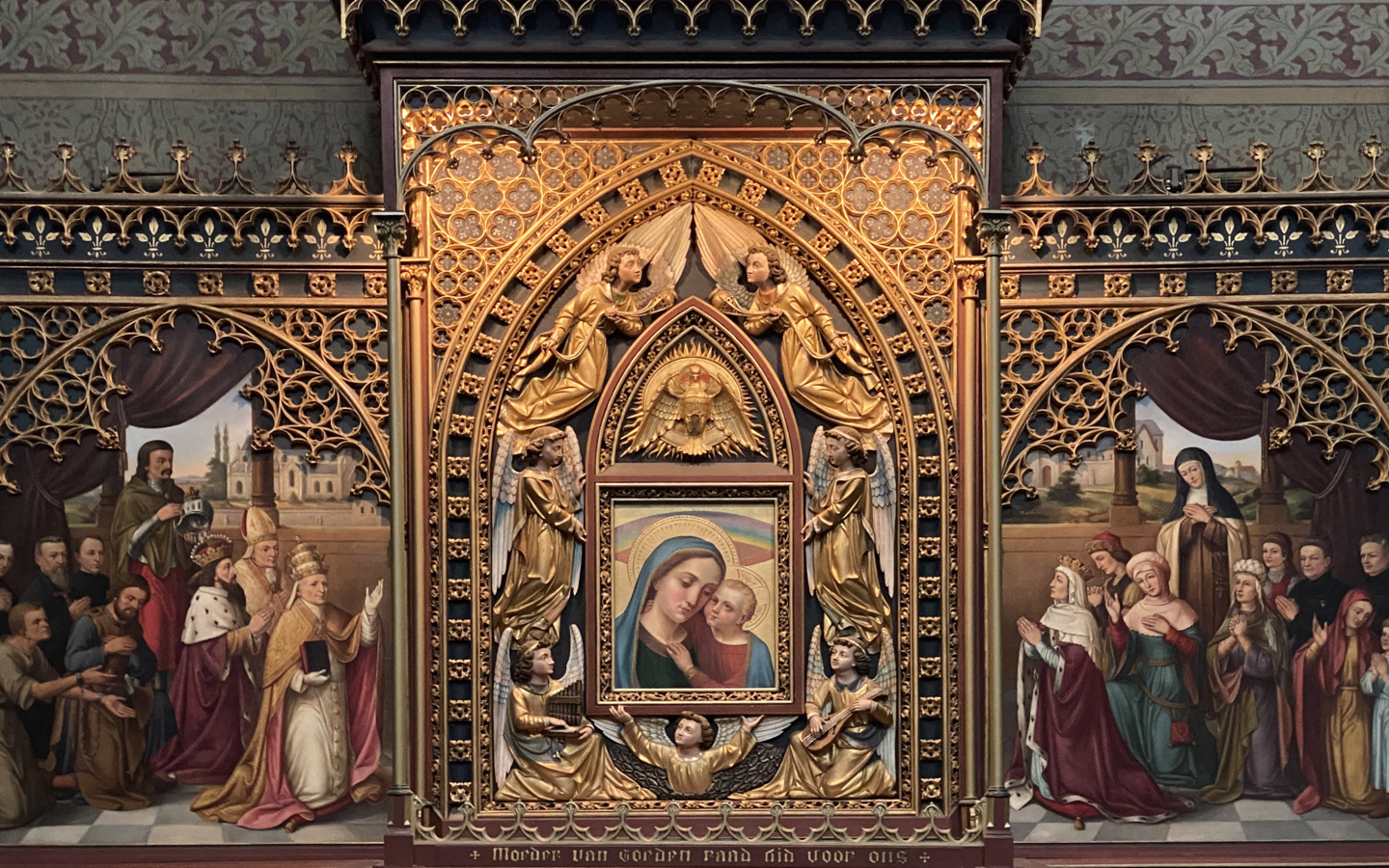Do not think that I am come to destroy the law, or the prophets. I am not come to destroy, but to fulfill. For amen I say unto you, till heaven and earth pass, one jot, or one tittle shall not pass of the law, till all be fulfilled.
~ Jesus [Matt 5:17-18]
The Principles
The purpose of this page is to set forth the principles which will govern the perspective offered on IntheSameSense.org, and which we believe ought everywhere to govern any genuinely Catholic understanding of the catastrophe that has befallen the Catholic world since the death of Pope Pius XII.
First Principle: Dogmatic Stability
Every best gift, and every perfect gift, is from above, coming down from the Father of lights, with whom there is no change, nor shadow of alteration.
~ James 1:17
For the doctrine of the faith which God has revealed is put forward not as some philosophical discovery capable of being perfected by human intelligence, but as a divine deposit committed to the spouse of Christ to be faithfully protected and infallibly promulgated... Hence, too, that meaning of the sacred dogmas is ever to be maintained which has once been declared by holy mother church, and there must never be any abandonment of this sense under the pretext or in the name of a more profound understanding.
~ The Vatican Council, On Faith and Reason, 13-14
Because the doctrine of the Holy Catholic Religion was revealed by the Most Holy Trinity, who is unchangeable, it participates in the divine stability and cannot undergo substantial change.
Second Principle: Dogmatic Accountability
Heaven and earth shall pass away,
but my word shall not pass away.
~ Jesus [Mark 13:31]
The doctrine of faith was handed down to us from the Apostles through the orthodox Fathers in exactly the same meaning and always in the same purport. Therefore, I entirely reject the heretical misrepresentation that dogmas evolve and change from one meaning to another different from the one which the Church held previously.
~ Pope Pius X, Sacrorum Antistitum, 1 September 1910
The doctrine of the Holy Catholic Religion has a fixed reference point to which it always adheres, and with which it always coheres, the depositum fidei. No doctrine can claim to be Catholic that fails in its accountability to this divine gift. Of necessity, therefore, Catholics must reject and denounce any doctrine that posits a departure — even to the slightest degree — from the the perennial doctrine of the Holy Roman Church.
Third Principle: Dogmatic Clarity
Faith then cometh by hearing;
and hearing by the word of Christ.
[Romans 10:17]
Because faith is the ascent of the mind to truths revealed by God, the doctrine of the Holy Catholic Religion which commands this intellectual ascent must, of necessity, be clear. Ambiguity, in and of itself, falsifies any claim to authority that a text may otherwise be thought to possess.
Fourth Principle: Dogmatic Humility
But the servant of the Lord must … be mild towards all men,
With modesty admonishing them that resist the truth…
[2 Tim 2:24-25]
Because of the Apostolic mandate to mildness, InTheSameSense.org is resolved to offer as clear a description of the crisis which grips the Catholic world as we possibly can, to present an ordered account of the Catholic doctrine which pertain to it, and to do so without rancor. #dontshootyourfriends
Support In The Same Sense
Inthesamesense.org was made possible by the generous donations of our friends. If you have benefited from this effort, please consider making a donation through our support page.
This "A Safe Way Forward" project is not intended to directly support public discussion of the data presented on this website. However, we are open to receiving input, additional data and other information relevant to the project's mission. If you would like to submit items that you think should be included, please send your submissions to ObscureMyEmail.
